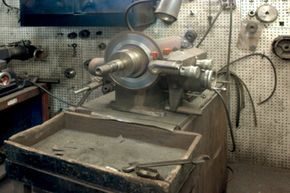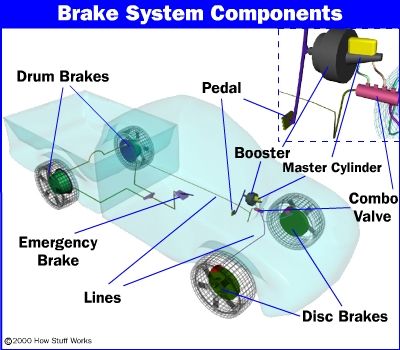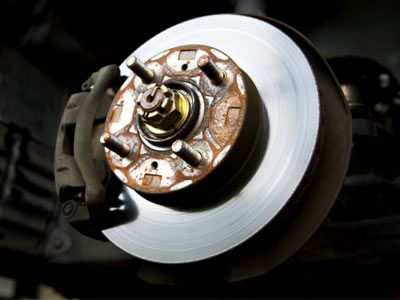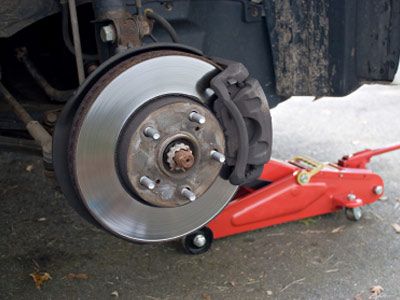A brake lathe is an efficient tool for curing noise and vibration problems, often prolonging the life of brake systems. Basically, brake lathes correct thickness variations on the rotor, a common condition caused either by one of two things:
- Chronic, uneven contact of the brake pad on the rotor surface (which is itself the result of other uneven or unbalanced components)
- Rust on the rotor surface (from extended or frequent contact with road salt or other corrosive contaminants)
These flaws are responsible for a lot of general, unspecific, "my brakes feel and sound funny" types of complaints. When such variation is found, the rotor's imperfections need to be removed -- this involves machining down those problems so the entire surface is even with the lowest point. It's usually less expensive and more efficient than replacing the rotor, especially considering that the job has to be performed twice -- the opposite rotor should be shaped to a 0.01-inch (0.25-millimeter) tolerance of the first.
Advertisement
There are two types of brake lathes. An on-car lathe often does a reliable job, because it's installed in the same position as the brake caliper, basically mimicking the movement of the wheel with regard to the car's calibrations. This provides the most accurate resurfacing possible. For an off-car lathe, or bench lathe, the rotor is removed from the car and mounted to the lathe. This type of lathe relies more on its own alignment, which is easily thrown out of spec from damage or frequent use. At best, a misaligned lathe will provide merely acceptable resurfacing; at worst, it might score or damage the rotor beyond the point it can be resurfaced.
Though brake lathes may have a certain appeal (since there's nothing like the bite of brake pad on fresh, clean rotors), they're most appropriate for professional garages. It's unlikely that people who simply prefer to work on their own cars would yield enough benefit from a personal brake lathe to be worthwhile. The lathe setup, depending on brand and style, costs upwards of several thousand dollars -- for the average car owner, it'll take a lot of brake jobs to break even. Brake lathes are designed with volume in mind, yet even machine shops face challenges turning a profit on machining brakes.
Brake lathes are also high maintenance. You'd have to clean one after every use in order to prevent buildup. Debris can cause irreversible damage to brake rotors as they're turned, and dust will make moving parts wear out too quickly. Bits (the parts that actually abrade the rotor) and oil must be changed regularly. They also create a lot of dust, noise and vibration (undesirable for a small or home garage).
Unless you've got a large, lonely shop or a lot of money to invest, a lathe is probably not the best solution to your brake woes -- if you really need to resurface rotors that frequently, you've probably got other problems. The next page will point you in the right direction for more brake, tool and car quandaries.
Advertisement



